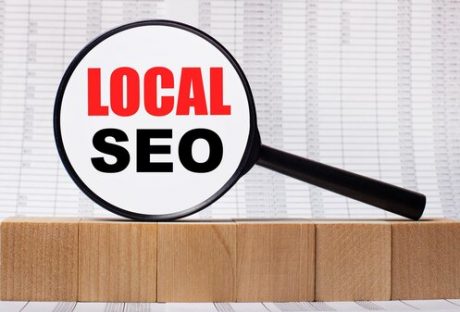Using search engine optimization to increase the visibility of your online content isn’t new. But there are businesses out there that don’t do it effectively.
They’re stuffing keywords in every nook and cranny of an article, hoping Google will be kind with its ranking. SEO involves much more than sticking a particular word or phrase in a blog post or landing page, though. It’s about connecting with potential customers using content that’s relevant to solving their problems.
Your SEO efforts should be centered around what your buyers’ needs are and how to meet those needs as effectively as possible. Therefore your content creation criteria should go beyond simply writing something that addresses a problem.
Your content should be accessible, informed by experts, and provide a positive experience to the reader. The opportunity to improve conversions is greater for marketers who keep the user at the center of their strategy.
1. Show Your Authority
Marketers’ old habit of stuffing keywords in their content willy-nilly is no longer effective for achieving higher rankings. Search engines like Google give higher priority to sites that have authority on a given subject. Expert-driven articles are much more likely to lure readers to your site. Developing content pillars is a great way to show authority and build trust with potential buyers.
A content pillar strategy involves creating a robust, long-form page centered around one topic. From there you can build out sub-topics related to the main one. A content pillar does contain numerous keywords that can boost SEO ranking, but it employs them in a natural, reader-friendly way. At the same time, because the material is so comprehensive around one main subject, it builds authority. Content pillar pages not only educate the reader, but they foster trust and keep users engaged.
2. Do Your Research
You might be the authority on a given subject, but you’ll lose sales if you don’t judiciously use keywords that match your customers’ search intent. You don’t want to do keyword stuff, but you do want to research and use keywords related to your expertise.
For example, if you run a coffee shop, naturally your content uses the word coffee. But you’ll want to consider long-tail keywords your customers might use such as “single estate coffee” or “fair trade coffee.” Think about what your customers would want related to all things coffee and what your business actually sells.
There are numerous tools you can use to do keyword research, enabling you to find words and phrases related to your main topic. Discovering how certain words and phrases relate to your region and the season can help you develop more user-friendly content.
Another tactic related to your research is digging into what keywords your competitors are using. Staying on top of the most recent trends is helpful for crafting up-to-the-minute content, like what you’d find on social media.
3. Create Accessible Content

Crafting thought leadership articles is a great way to utilize high-intent keywords and show authority. When your content is difficult to read, however, potential buyers are likely to leave your site quickly. Bulky paragraphs without images can be a major turnoff to readers. Make sure to break up your content using lists, bullets, and relevant visuals. As a good rule of thumb, use one image for every 300 words in a blog.
SEO rankings aren’t just about the words on the page. Your content needs to be accessible in terms of how your site loads. If it takes too long for your site to load, expect readers to abandon it. Google suggests your site should take less than a half-second to load for top SEO performance. It should load just as quickly on mobile as well.
4. Develop Visual Content
As noted, a blog post that includes images relevant to the topic is much more appealing to the reader. What’s just as effective — maybe more so — is short-form video. With the boom of social sites like TikTok, short videos are proving to have strong ROI. Consider producing short videos of 60 or fewer seconds and sharing them on social media using keywords. Be sure your videos are informative and engaging.
Videos aren’t the only form of visual content that can move the needle. Strong infographics that tell a story and keep readers engaged can make a big impact. The technical components of visual aids like images or videos are just as important for SEO. Make sure meta tags for all visuals include keywords. That image of a coffee cup should be tagged “dark roast coffee” instead of “file123.jpg.”
5. Optimize Current Content
Making use of content that already exists is an underappreciated way to increase your SEO ranking. After all, you worked hard to write those blog posts. Why not optimize and repurpose them? Refreshing old content can save time and provide new opportunities to reach potential customers.
For older blogs and articles, consider their continued relevance. If the messaging is still appropriate, update it with high–search intent keywords. Remove dates from both the content and URL to make them evergreen. Update meta tags on all images. Mix it up by turning blogs into a short-form video, if that’s more appealing to your buyers.
Maintaining a Customer Focus
Strong content is essential to any marketing strategy. As with any part of your business, keeping your customer as the core focus is important to improving SEO. Using the keywords readers are searching for is imperative, but it’s not the whole story. Prioritizing the user experience by producing content that’s accessible, builds authority, and creates trust is what will move the SEO needle.
Read Also:
- How To Monitor The SEO Health Of Your Website
- The Art Of Creating Viral Content On TikTok For Marketing Apps
- 4 points to consider when creating a Great Content Marketing Strategy






















